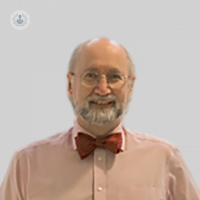Treatment for arrhythmia
Written by:When is treatment needed for arrhythmia?
Treatment for arrhythmia is required if it is causing symptoms that are unpleasant or stopping you from doing things. It is also required if it is something that may potentially cause a long term problem, especially being fatal.
A dangerous arrhythmia that can cause a blackout or heart failure must be treated, but many arrhythmias are harmless. It is only worrying because people think that it must be serious as it is heart related but this isn’t always the case.
Cardiologists work to reassure people when their particular arrhythmia isn’t a danger and that they can safely ignore it.

How can you treat an arrhythmia?
There are 3 ways to treat an arrhythmia:
- Treat the cause (e.g. blood pressure)
- Treat the arrhythmia itself (e.g. with drugs or a pacemaker or ablation)
- Treat the effects of the arrhythmia (e.g. the risk of blood clots, with anticoagulant)
What is the first line of treatment for arrhythmia?
The first step in treatment is to identify the arrhythmia. Often, patients’ concern about symptoms of arrhythmia aren’t due to the effects of the arrhythmia itself on the circulation, but the perception that something could be seriously wrong with the heart.
Once the arrhythmia has been identified as not dangerous the patient can be reassured that nothing needs to be done and that is in itself effective treatment.
Cardiologists often find that it helpful to explain to people that symptoms almost always have a physical cause but often patients don’t notice them if they are mild or have been the same for some time because their brain is preoccupied with other things. The subconscious will alert them to symptoms which change, or if they have a reason to be worried about their heart.
If patients find that, for example, a relative has suddenly suffered from a heart attack, their subconscious will alert them that they’re having a few ectopic (extra) beats, which warns the patient that they may have the same problem and to seek medical treatment.
Usually once people realise that what their symptoms are not related to a serious arrhythmia, then gradually it fades into the background and they don’t notice them.
Can arrhythmia be treated permanently?
Some kinds of rapid palpitation attacks, SVTs, treatment of a localised electrical fault with catheter ablation (minimally-invasive surgery) is usually permanently successful and has no long term adverse effects.
For atrial fibrillation, the long-term outcome from ablation is less certain because cardiologists haven’t been doing it for very long and therefore don’t know how permanently effective it can be. In some cases, it may be but in many cases, atrial fibrillation is only part of a general disease of the heart. This may be quite mild but can mean that fibrillation will eventually become the established rhythm of the heart, and doctors will have to change to some other form of treatment to aimed at preventing it causing symptoms or complications.
The same applies to other arrhythmias that cannot be fixed permanently, doctors can ensure they’re not a problem for the patient. In a sense, this is permanent treatment but it involves the arrhythmia still continuing and the behaviour of the heart being modified so that the patient tolerates it and isn’t aware.
In atrial fibrillation, if the rate of the fibrillation is controlled, patients are often quite unaware of it. A very important issue with fibrillation is anticoagulation. If the heart is fibrillating for more than 24 hours, there’s a risk of blood clots developing in the heart, which could come loose and be carried in the bloodstream to the brain, causing a stroke. This can be prevented by taking anticoagulant.
Risks of stroke can be calculated based on age and other factors. When it comes to the point where the risks of having a stroke are worse than the risks of bleeding from anticoagulation (and this applies to most people over 60), that treatment is advisable. Anticoagulation as part of a treatment for atrial fibrillation is vital.
Some conditions can make the heart beat too slowly, causing fatigue, sleepiness, faintness or blackouts – if there is no treatable cause (e.g. medications or under-active thyroid) then implantation of a cardiac pacemaker can permanently relieve the problem. Likewise, people who are at risk of cardiac arrest may have an implanted cardiac defibrillator which will automatically revive them.
Quite often arrhythmias develop as a temporary problem, for example, due to stress or a viral infection or a heart attack. They usually only need to be treated for a few weeks or months; then they settle down and either the arrhythmia disappears by itself or people stop noticing it. Natural healing often solves the problem.


